10+ SAMPLE Mobile Catering Business Plan
-
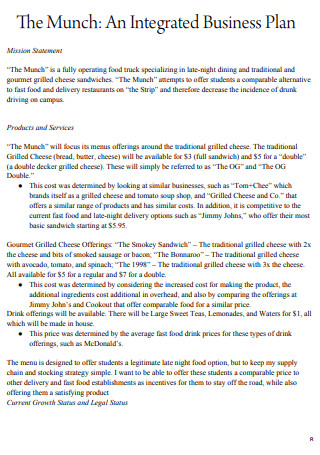
Integrated Mobile Catering Business Plan
download now -
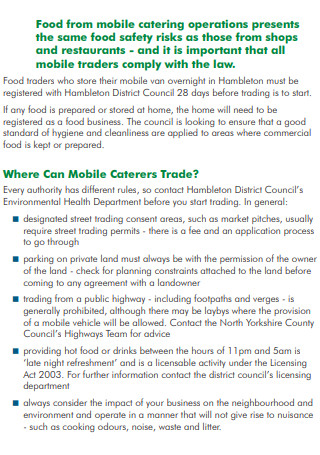
Mobile Catering Business Plan Guidelines
download now -
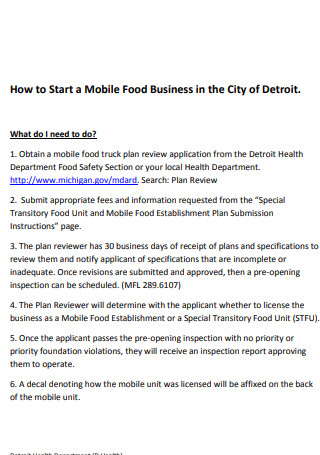
Mobile Catering Business Plan Regulations
download now -
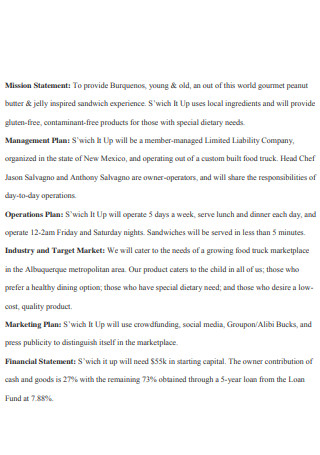
Mobile Catering Business Plan Template
download now -
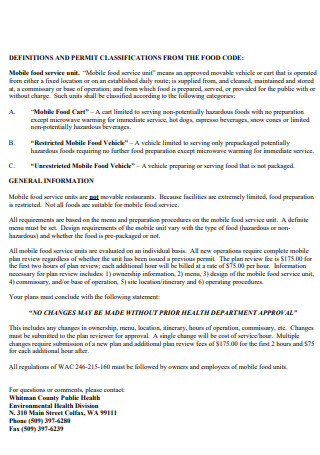
Mobile Food Catering Business Plan Example
download now -
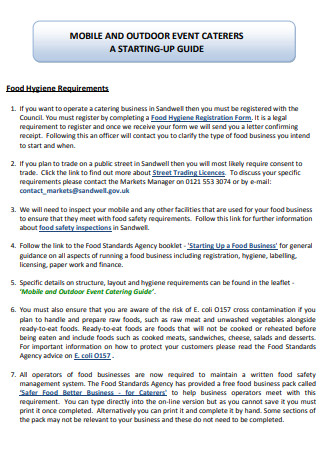
Printable Mobile Catering Business Plan
download now -
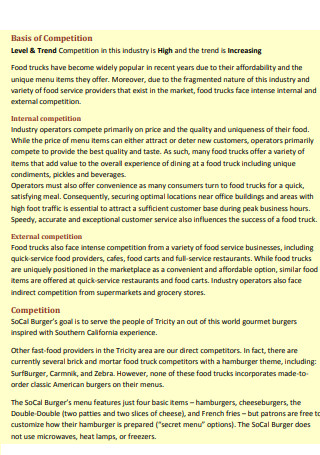
Professional Mobile Catering Business Plan
download now -
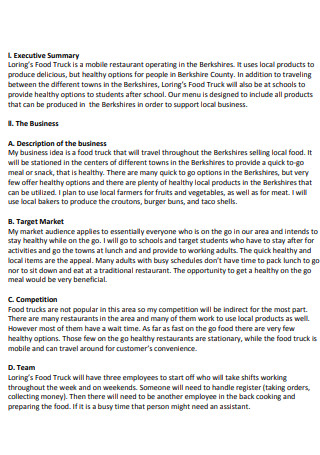
Short Mobile Catering Business Plan
download now -
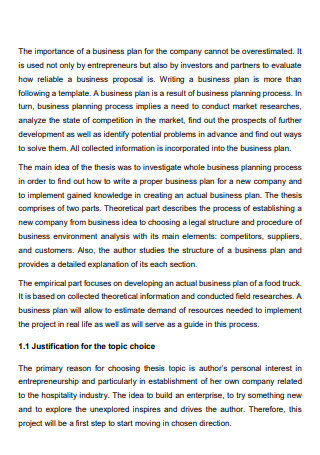
Simple Mobile Catering Business Plan
download now -
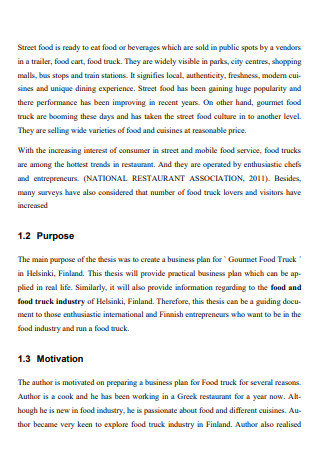
Standard Mobile Catering Business Plan
download now -
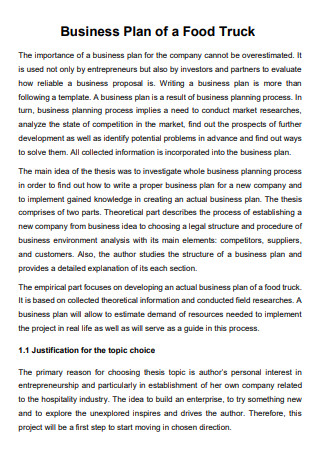
Mobile Food Truck Catering Business Plan
download now
FREE Mobile Catering Business Plan s to Download
10+ SAMPLE Mobile Catering Business Plan
Mobile Catering Business Plan: What Is It?
Benefits of a Mobile Catering Business
Getting Started with a Mobile Catering Business Plan
FAQs
What are some useful tips when writing a mobile catering business plan?
What are the foods being served in a mobile catering business?
What are some other ways a business owner can do to succeed in the mobile catering business?
What are the usual documents required when setting up the mobile catering business?
Mobile Catering Business Plan: What Is It?
A mobile catering business plan is a written documentation of the process of how a mobile catering business reaches its goal in terms of profit, growth and sustainability. It identifies the type of industry and background information the business is in, its financial forecast, and it includes what are the plans and strategies in order to achieve the business goals. The business plan sets out the road map for the direction of the business. Mobile catering is a type of food business where food is being prepared and served in a vehicle. Mostly found in urban areas, this type of catering comes with its own built-in kitchen equipment within the vehicle, such as cooking gas range, deep fryer, refrigeration, heating or cooling equipment, barbeque grill, et cetera. A food truck is one of the most popular types of mobile catering that has seen a growing trend over the years, given its wide and diverse range of menu options and exposure on the mainstream media. Another variant of a mobile catering are your typical hotdogs, tacos, and sandwiches, and ice cream stands. Mobile catering also services big events such as weddings, birthday parties, corporate events, and so on.
As the need for fast, convenient, and take-out food increases over the years, so does the business for mobile catering continue to grow. The demand for the variety of food choices also increased, ranging from the common street food staples, to the more healthy, less greasy and less sugary type of foods. For a food enthusiast and entrepreneur, mobile catering is one of the most profitable food business you can invest in.
Benefits of a Mobile Catering Business
It’s all about your food passion, and of course, making a good profit. Entrepreneurs who wanted to join the food bandwagon industry often asked themselves what type of food business they should be getting into. If they’re the kind who are connoisseurs of the finest foods, they could open up a restaurant. If they’re into baking, they could set up a good old fashioned pastries shop. If they’re into convenience yet healthy food choices, they could open up a deli business shop. Or, if they’re into the fast life and want a fast ROI on their investment, the mobile catering business is a good option for them. Below are some of the benefits of opening up a mobile catering business.
Getting Started with a Mobile Catering Business Plan
Of course, you don’t get to be a successful food entrepreneur overnight. What you need to do in order to be successful in the mobile catering business is to come up with a good business plan. The aim of a business plan is to make sure that the business you built is sustainable, profitable, and in it for the long run. It lays out the process, direction, strategies needed to be taken to achieve that goal. Now, you are aware about the global impact and trend the mobile catering business has. You saw the figures and the potential estimated revenue it can earn. It can be huge and exponential, or it can be at a limited profit margin, all depending upon the effort you put into it. The mobile catering business plan guides you in your effort on how you want your business to grow. These are some of the steps when creating that business plan for your mobile catering business.
Step 1: Business Executive Summary
The Business executive summary is where you write down the important information about your mobile catering business in short, clear and concise statements. It is an overview of what your business is all about and what it aims to accomplish. It gives a brief outline of what your business plan will contain, so that the reader will have an idea what to expect as they go through it.
Step 2: Market Analysis
Do a market analysis. A market analysis will help you understand if there is a niche for the type of mobile catering business you will be setting up, and what that current market condition looks like. Do the SWOT analysis. SWOT stands for Strengths, Weaknesses, Opportunities, and Threats. Identify what are the strengths of your mobile catering business, what it does well and what makes it stand out. Next, find out what is its weakness, what it needs to improve upon, and/or what its lacking resources are. Opportunities are those strategies and techniques that you can latch on to to grow your mobile catering business, such as advertising and marketing strategies. Threats are anything identified that can hinder the growth and success of your business, such as nearby competitors, strict laws of a locality, et cetera. Another way to do market analysis is through demographic segmentation. It is by identifying your target customer market and classifying them according to age, gender, income, lifestyle, and so on. This would help you later on formulate better marketing strategies and concepts, especially when creating your food items.
Step 3: Creating Products, Services, and Marketing Strategies
This is where you write down the details of your menu, food styles, and other services, if you have it, as part of your mobile catering business. Start getting creative. Once you have your market analysis and demographics figured out, you would basically know what appeals to your customers. If you’re catering to a large event, such as a wedding, you can go for the gourmet type of food preparation. If you are into the food truck business, identify what foods the people in that locale are into. You can get creative and innovative when creating your food items by incorporating exotic ingredients such as an avocado, mango, and so on. Or, for the healthy lifestyle enthusiasts, you can also include in your menu deli-like choices. For the services, you can include selling pre-packed meals. Next is to identify your marketing strategies. Write down your action steps on how to reach and approach your customers. You could do this through advertising through different media channels, such as through social media, flyers, TV or radio broadcasts, and so on. Plan out the prices for your food using the pricing strategies: skimming, market penetration, premium and economy. Also, start working on that catchy logo and slogan to appeal to your customers.
Step 4: Financial Requirements
Financial requirement is your budget or expenses required to start up your business. For the mobile catering business, your financial requirements would be the cost of the vehicle, if it’s going to be purchased or rented. The costs for buying the kitchen equipment and the ingredients, including salaries for your staff, if there are. Also included are necessary licenses and permits fees related to setting up your mobile catering business in that locality. Preparing the financial requirement is crucial in a business plan, especially if you are going to use this as a presentation or a proposal to ask for a loan or a funding from a financial institution.
FAQs
What are some useful tips when writing a mobile catering business plan?
Write in brief, concise and clear statements. Avoid using jargon and long-winded sentences. Support your business plan with references, such as the source of your market analysis research. Be objective, so that you can honestly show the strengths and weaknesses of your business. Always identify who your target audience is for the business plan. Is it for the purpose of presenting to a financial institution in order to secure funding? Or is it to be presented to potential investors? Make sure that your marketing plan and strategies adhere to the SMART goal: Specific, Measurable, Achievable, Relevant and Time-bound.
What are the foods being served in a mobile catering business?
The food choices in a mobile catering can vary or can be made as ordered. If the market to be served is an event, the type of food will depend upon the customer’s specific request. If it’s a food stand or a food truck, common foods usually served are sandwiches, hamburgers, hotdogs, barbeques, tacos, fries, and other known street foods. Some would serve Chinese, Thai, Indian or other foreign cuisines, and some would have healthy food options as well. Most of the time, foods served in mobile catering are those fast and easy to prepare and cook types of foods.
What are some other ways a business owner can do to succeed in the mobile catering business?
Aside from having an effective business plan, the best way to succeed in the mobile catering business is the amount of effort and labor you put into your business. An example would be putting more hours into the business by having an almost 24 hours run in an area where businesses and its employees work in a 24 hours shifting schedule. Another would be putting some more effort into your marketing strategy by creating great pitches for a logo or a slogan. Changing up the menu regularly is another way, since this would excite your customers and would make them look forward to what you would be cooking up next.
What are the usual documents required when setting up the mobile catering business?
The usual permits and registrations needed when setting up the mobile catering business are usually the local government business permits, and permits coming from the food and safety group, transportation and vehicle, safety and hazard, and zoning.
The mobile catering business growth shows no signs of stopping. It is a profitable business to get into for food entrepreneurs who would love a low cost startup with a big return on investment; depending, of course, on the effort that they put into it. It is a flexible business, and its popularity in the mainstream media also serves as an advantage for those who are planning to join the mobile catering industry. Armed with the right business plan, success and growth is a certainty for the business owner.
Thinking of joining the mobile catering business bandwagon? Download our mobile catering business plan templates now, and let our template stir you in the right direction to a successful business in the mobile catering industry!
